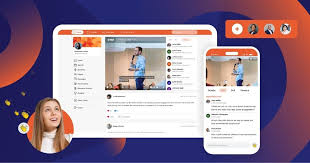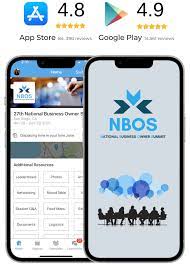The Benefits of Hybrid Event Management Software
Hybrid events, which combine in-person and virtual components, have become increasingly popular in today’s digital age. To effectively manage these complex events, event planners are turning to hybrid event management software.
Hybrid event management software offers a wide range of benefits, including:
- Seamless Integration: These software solutions seamlessly integrate both in-person and virtual elements of an event, providing a cohesive experience for attendees.
- Enhanced Engagement: With features such as live polling, chat rooms, and interactive sessions, hybrid event management software enhances attendee engagement both on-site and online.
- Data Analytics: Event planners can gather valuable data insights from both the physical and virtual aspects of the event, allowing for better decision-making and future planning.
- Cross-Platform Accessibility: Attendees can easily access event content from various devices and locations, increasing accessibility and reach.
- Cost-Effective Solutions: By combining in-person and virtual components, hybrid event management software offers cost-effective solutions that maximize ROI.
In conclusion, hybrid event management software is essential for successfully planning and executing modern events that cater to both physical and virtual audiences. Embracing these innovative tools can help ensure the success of your next hybrid event!
7 Essential Tips for Selecting the Perfect Hybrid Event Management Software
- Choose a hybrid event management software that offers both in-person and virtual event capabilities.
- Ensure the software has features for seamless integration of virtual attendees with in-person participants.
- Look for tools that facilitate networking opportunities for both virtual and in-person attendees.
- Select a platform with robust analytics to track engagement and gather insights from both types of events.
- Consider the scalability of the software to accommodate varying numbers of attendees for each event type.
- Prioritize user-friendly interfaces and technical support to ensure smooth operation for all participants.
- Verify data security measures to protect sensitive information shared during hybrid events.
Choose a hybrid event management software that offers both in-person and virtual event capabilities.
When selecting a hybrid event management software, it is crucial to choose a platform that provides comprehensive capabilities for both in-person and virtual events. By opting for a software solution that seamlessly integrates these two components, event planners can ensure a cohesive and engaging experience for all attendees, regardless of their physical location. This approach not only enhances the overall event experience but also maximizes reach and accessibility, ultimately leading to a successful and impactful hybrid event.
Ensure the software has features for seamless integration of virtual attendees with in-person participants.
When selecting hybrid event management software, it is crucial to ensure that the platform offers features for seamless integration of virtual attendees with in-person participants. This capability allows for a cohesive and interactive experience for all attendees, regardless of their physical location. By incorporating tools that facilitate smooth communication and engagement between virtual and in-person audiences, event organizers can create a more inclusive and engaging event environment that maximizes participation and overall success.
Look for tools that facilitate networking opportunities for both virtual and in-person attendees.
When selecting hybrid event management software, it is crucial to prioritize tools that enable networking opportunities for both virtual and in-person attendees. By incorporating features that facilitate connections and interactions between participants across different platforms, event organizers can create a more engaging and inclusive experience for all attendees. These networking tools play a vital role in fostering meaningful connections, promoting knowledge sharing, and enhancing overall participant satisfaction during hybrid events.
Select a platform with robust analytics to track engagement and gather insights from both types of events.
When selecting hybrid event management software, it is crucial to choose a platform with robust analytics capabilities to track engagement and gather insights from both in-person and virtual components of the event. By utilizing advanced analytics tools, event planners can gain valuable data on attendee interactions, participation levels, and overall event performance. These insights enable informed decision-making, allowing for targeted improvements and adjustments to enhance the attendee experience across all event formats.
Consider the scalability of the software to accommodate varying numbers of attendees for each event type.
When selecting hybrid event management software, it is crucial to consider the scalability of the platform to accommodate varying numbers of attendees for each type of event. The ability of the software to scale up or down based on the size of the audience ensures a seamless and efficient experience for both in-person and virtual participants. By choosing a scalable solution, event planners can effectively manage events of different sizes without compromising on performance or attendee satisfaction.
Prioritize user-friendly interfaces and technical support to ensure smooth operation for all participants.
To ensure the seamless operation of hybrid events for all participants, it is crucial to prioritize user-friendly interfaces and reliable technical support within the event management software. By offering intuitive interfaces that are easy to navigate, attendees can engage with the event content effortlessly, whether they are joining in-person or virtually. Additionally, providing robust technical support ensures that any issues or questions that arise during the event can be promptly addressed, enhancing the overall experience for all participants. Prioritizing user-friendly interfaces and technical support is key to creating a smooth and successful hybrid event for everyone involved.
Verify data security measures to protect sensitive information shared during hybrid events.
It is crucial to verify data security measures when utilizing hybrid event management software to safeguard sensitive information shared during hybrid events. Ensuring that robust security protocols are in place helps protect confidential data from potential breaches and unauthorized access, maintaining the trust of both in-person and virtual attendees. By prioritizing data security, event planners can create a safe and secure environment for all participants, enhancing the overall success and reputation of their hybrid events.



